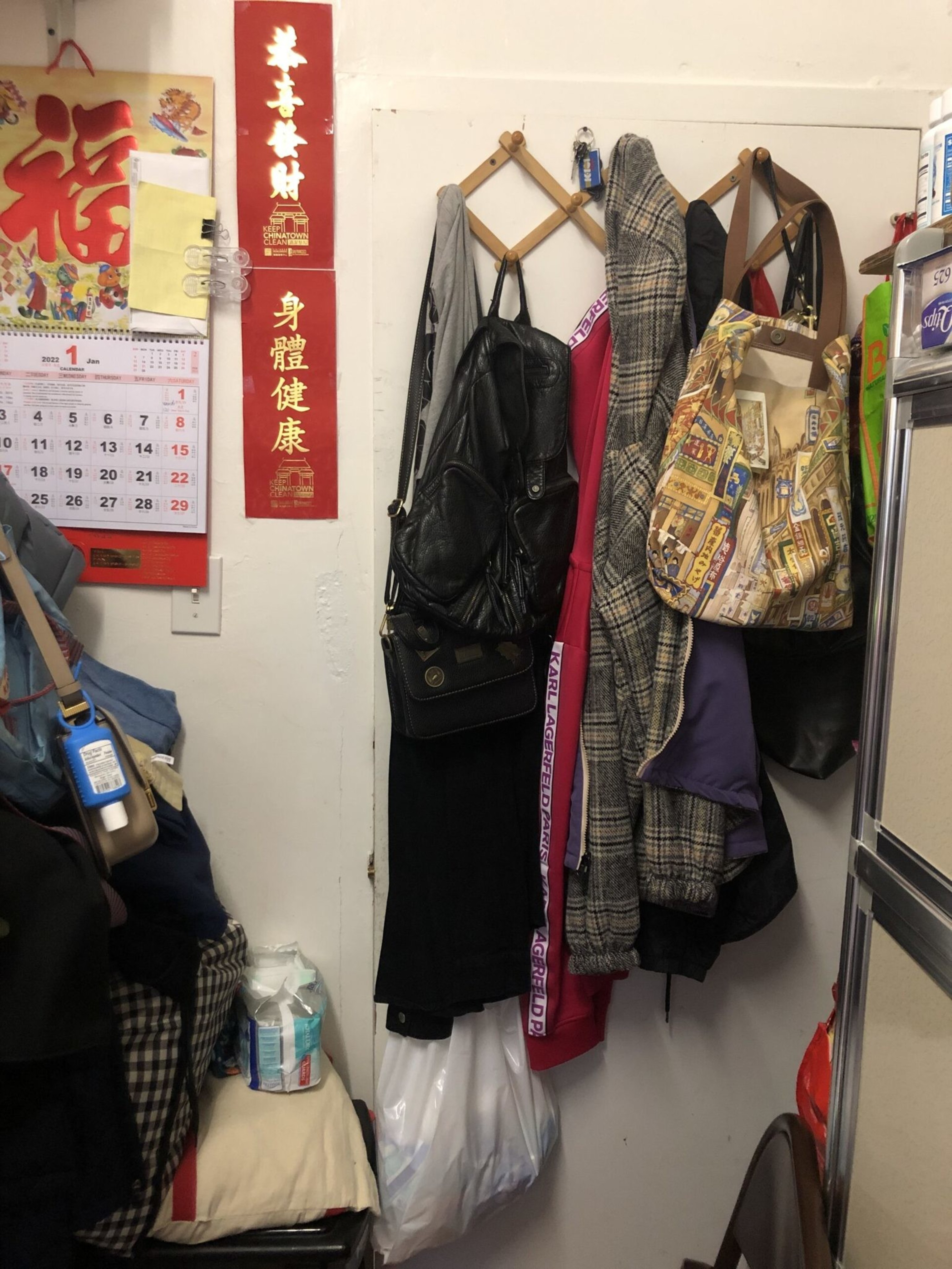Sarah Chen kicked off the New Year by coming down with Covid. She thought her family would get help from the city. What awaited them instead was a nightmare.
An immigrant with limited money, Chen lives in a single-room-occupancy (SRO) building in San Francisco’s Chinatown with her mother and sister. They didn’t have the financial resources to quarantine Chen by herself, so it was only a matter of time until the virus spread through the tiny 80-square-foot room. Within days, Chen’s mother tested positive. Fearing for her younger sister, Chen and her mother borrowed money from relatives to place the minor in a hotel room until their infections passed.
In a phone interview with The Standard, Chen’s mother—who requested her name not be used—coughed and cried before wondering: “Are we just waiting to die here?”
Such a thought has likely been shared by many of San Francisco’s SRO residents, who number approximately 30,000 and have seen a massive spike in Covid cases as the Omicron variant has become the dominant strain. A total of 642 SRO residents in San Francisco were infected with Covid from Dec. 15, 2021 to Jan. 15, 2022, according to the latest city data (opens in new tab). That’s a 1,500% increase from the 37 cases recorded in the prior one-month period.
As the city struggles to solve its housing and homelessness crises, some SRO residents are saying the San Francisco Department of Public Health is largely ignoring their needs.

Chen, who initially wanted an independent room for quarantine after her positive test, said the city waited four days to respond to her request for help quarantining. She ended up getting denied, more or less assuring her mother would get infected while they also risked the health of others in the building who share kitchen and bathroom spaces. “My mom had no symptoms at the beginning,” Chen said. After staying in the same room for days, Chen’s mother tested positive on Jan. 7.
The city’s Department of Public Health was seemingly unprepared for the SRO issue. Three days after The Standard contacted the agency for this story, the department issued a statement saying that it recognizes SRO residents have specific needs, but quarantine placement “is based on clinical need and resource availability.”
“We are prioritizing people living in San Francisco with confirmed positive COVID cases who cannot safely isolate from medically vulnerable people,” officials said “A person who requests an isolation hotel will be evaluated by a nurse.”
The statement didn’t specifically address SROs and what tenants who test positive should do instead of using communal kitchens and shared bathrooms. In many cases, other “medically vulnerable” tenants might live on the same floor. Chen’s mother said when other tenants found out they had Covid, she and her daughter were asked to stop using the bathroom.
Karen Chan, the senior organizer of the Chinatown Community Development Center, has helped the family through its ordeal, and she noted that the city should have provided quarantine resources.
“Will the Department of Public Health only understand the seriousness of the matter until the residents of the entire SRO building got Covid?” Chan said. “Being tested positive is scary enough, but the more intimidating thing is waiting at the SRO room desperately without help.”
The Chen family’s story was first reported by the local Chinese-language press (opens in new tab) on Jan. 10. The community was stunned and donations from all over the Bay Area poured in. Roughly $3,000 has been raised for the Chen family.
Gallery of 2 photos
the slideshow
Jian Zhang, CEO of the Chinese Hospital, a major health provider in Chinatown, said she understands that the Omicron surge has led to limited availability of quarantine resources, but SROs should be prioritized due to the “high-risk” of infection for residents.
On Jan. 21, almost two weeks after the city denied the Chen family’s request for quarantine rooms, San Francisco Mayor London Breed announced $5.4 million in funding (opens in new tab) to provide financial assistance to Covid-positive San Franciscans who lose out on income while quarantining.
“When someone comes down with the virus, we want them to focus on getting the care they need and the resources to isolate in order to protect their family and surrounding community,” Breed said in the statement.
However, the mayor’s plan provides one-time funding. Supervisor Aaron Peskin has suggested a more long-term plan to provide relief to SRO tenants.
“It was difficult to get the City Attorney’s and DPH’s attention on the plight of SRO residents at the start of the pandemic,” said Peskin, whose district includes the Chinatown area.
The supervisor said he intends to re-introduce the SRO protection law (opens in new tab), which was passed in 2020 but has since expired. With many health experts suggesting the pandemic is closing in on its endemic phase, Peskin’s plan would make a permanent public health policy to strengthen the safety net for SRO tenants.
“The transmissive nature of our SRO housing means that COVID is still very much a concern for our SRO residents, and they deserve to have culturally competent services that ensure they’re able to isolate and quarantine safely,” Peskin said.
Last week, both Chen and her mother were recovering and tested negative, allowing the family’s younger daughter to return home.


